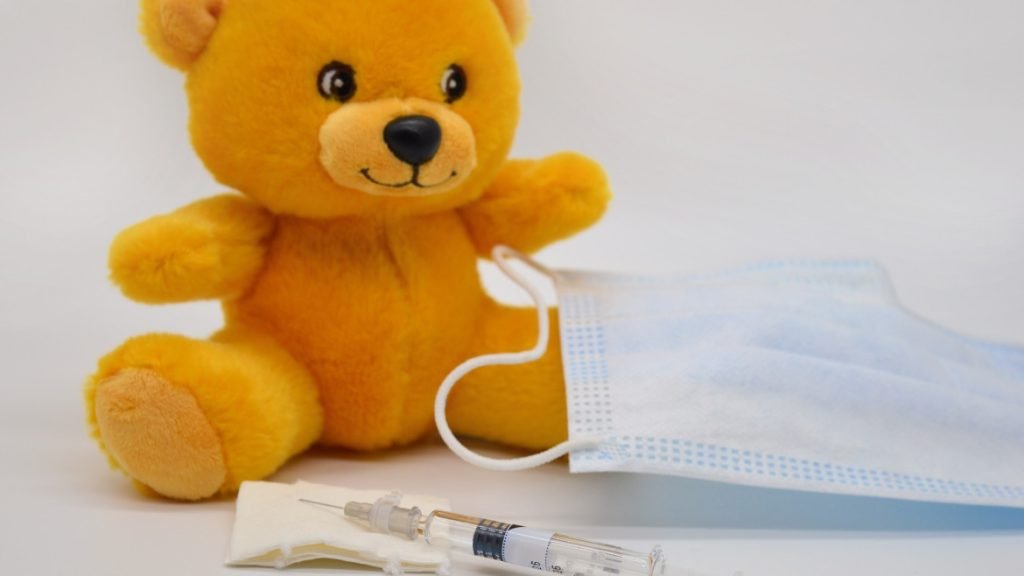
Why Screen Time Is One of Today’s Biggest Parenting Challenges
From YouTube and FaceTime to educational apps and TikTok, screens are embedded in nearly every corner of our children’s lives. As parents, we’re constantly asking: How much is too much? The answer isn’t always straightforward. The conversation around screen time and kids isn’t just about minutes and hours—it’s about what they’re watching, how they’re interacting with technology, and how it affects their physical, emotional, and social development.
At Lifeguard Pediatrics, we work with families every day who are navigating the challenges of screen exposure. Our goal is to offer real-world strategies that are rooted in science—and tailored to your family’s unique rhythm. Let’s explore how screen time impacts kids, what the latest guidelines say, and how you can build a healthy balance that supports your child’s overall well-being.
🧠 The Effects of Screen Time on Child Development
The growing body of research on screen time and kids continues to shed light on how excessive digital engagement can affect a child’s development.
The Risks of Too Much Screen Time:
- Poor sleep quality: Blue light from screens can interfere with melatonin production, disrupting sleep cycles.
- Behavioral issues: Irritability, tantrums, and attention problems are commonly linked to screen overuse.
- Delayed language development: Young children may miss out on real-life communication cues and vocabulary-building interactions.
- Obesity: Sedentary screen habits often replace active play, contributing to weight gain.
- Lower academic performance: Distraction and decreased attention span can hinder learning.
- Social withdrawal: When screen use replaces human interaction, it can delay emotional intelligence and social skills.
These concerns don’t mean screens are inherently bad—but they do mean that screen time and kids must be approached with thoughtfulness and structure.
📊 Pediatric Screen Time Guidelines: What Experts Recommend
The American Academy of Pediatrics (AAP) provides evidence-based recommendations to help parents set developmentally appropriate limits on screen use.
| Age Group | Recommended Screen Time |
|---|---|
| Under 18 months | Avoid screen time (except for video chatting) |
| 18–24 months | Very limited, high-quality content WITH a caregiver |
| 2–5 years | 1 hour/day max, co-viewed with a parent or caregiver |
| 6 years and older | Consistent limits on content and time, emphasizing balance |
💡 7 Real-Life Strategies to Manage Screen Time and Kids
Creating a healthy relationship with technology starts at home. Here’s how to set boundaries without constant battles.
1️⃣ Be a Role Model
Children mirror the behavior of adults. If you’re constantly scrolling through your phone during dinner or downtime, they’ll see that as the norm.
✅ Try: Declaring tech-free zones (like the dinner table or car rides).
2️⃣ Establish Screen-Free Zones & Times
- Bedrooms should be screen-free—especially before bed.
- Make mealtime a time for conversation and connection.
3️⃣ Co-View Content
- Ask open-ended questions: “Why do you think that character acted that way?”
- Reinforce family values: “Would that be OK in real life?”
4️⃣ Balance with Offline Play
- Encourage at least one hour of physical activity daily.
- Prioritize real-world social interaction—playdates, family games, outdoor adventures.
5️⃣ Teach Digital Self-Regulation
- Help them recognize screen-related fatigue or irritability.
- Introduce tech breaks and digital detox days.
6️⃣ Set and Stick to Limits
Consistency builds healthy habits. Flexibility is okay on special occasions, but day-to-day expectations should be clear.
7️⃣ Choose Quality Over Quantity
Not all screen time is equal. Educational games, virtual museum tours, and creativity-based platforms are more beneficial than passive scrolling.
✅ Use trusted platforms like PBS Kids to find age-appropriate, enriching content.
🚩 Signs Your Child Might Be Getting Too Much Screen Time
Worried your child is overdoing it? Look out for these warning signs:
- Frequent meltdowns when screen time ends
- Sleep disruptions or fatigue during the day
- Loss of interest in hobbies or outdoor play
- Social withdrawal or irritability
- Declining grades or school motivation
These red flags can indicate that screen time and kids may no longer be in a healthy balance. If you notice these patterns, talk with a pediatrician about next steps.
📝 Frequently Asked Questions (FAQs)
1. What services does Lifeguard Pediatrics offer?
We provide comprehensive pediatric care including well-child visits, immunizations, sick visits, behavioral health consultations, and developmental screenings for children from birth through adolescence.
2. Do you offer guidance on managing screen time and kids?
Yes! Our pediatricians provide personalized support to help families set healthy screen time boundaries that align with each child’s developmental stage and family values.
3. Can I book an appointment online?
Absolutely. You can visit our website at www.lifeguardpediatrics.com/book-an-appointment to schedule your visit online.
4. Do you help with behavioral concerns related to screen use?
Yes, we often see children with screen-related behavioral challenges. Our team helps assess the issue and provides strategies to improve your child’s daily functioning.
5. Are virtual visits available?
Depending on your child’s needs, we may offer telemedicine consultations for follow-ups and certain non-urgent concerns. Call our office to check availability.
🌟 Final Thoughts: A Balanced Future Starts Now
Technology isn’t going away—but with thoughtful parenting, consistent limits, and strong role modeling, screen time and kids can coexist in a healthy, balanced way. Your child doesn’t need perfection—just presence, connection, and a plan.
📞 Ready to Talk? We’re Here to Help
At Lifeguard Pediatrics, we’re passionate about supporting families in every aspect of their child’s health—including screen habits, sleep, nutrition, and behavior. If you’re struggling with managing screen time and kids, don’t wait—reach out today.
- 📍 Address: 107 Peacock Drive, Warner Robins, GA 31088
- 📞 Phone: (478) 922-3074
- 📧 Email: lifepeds@yahoo.com
- 🌐 Website
- 📅 Patient portal
Together, we’ve got this. 💛


